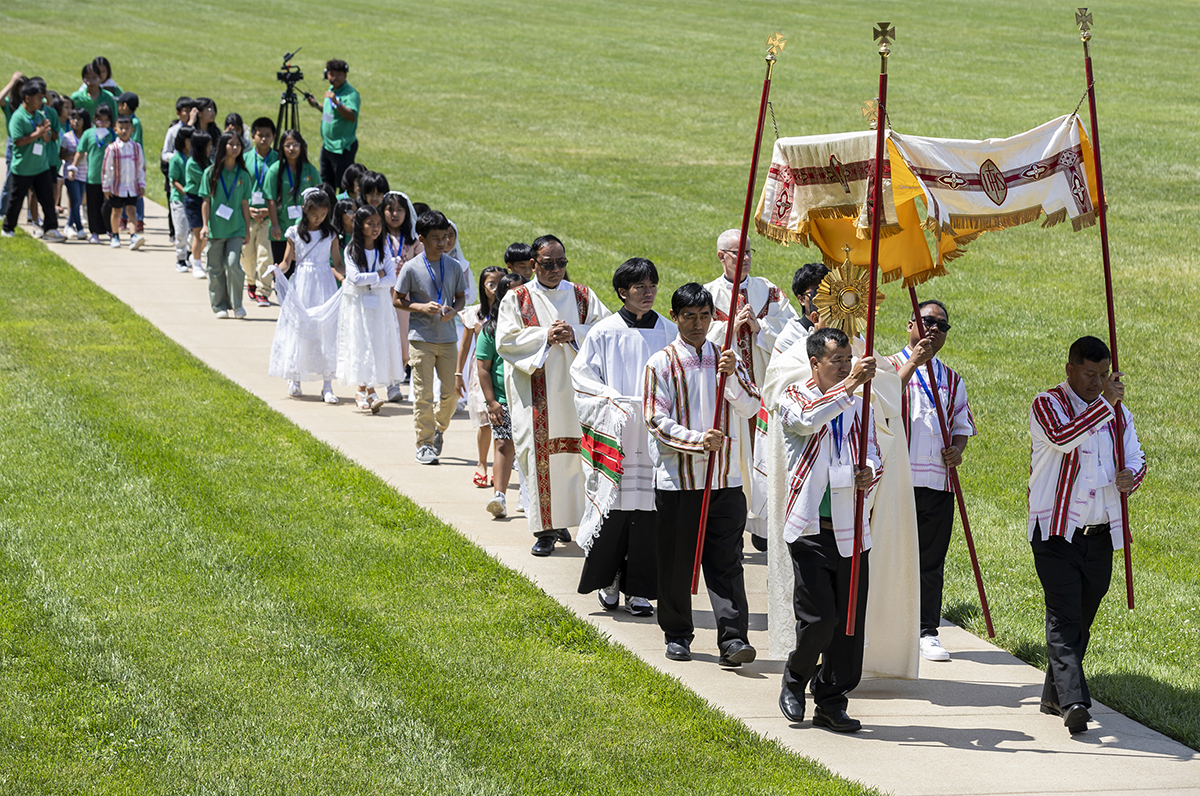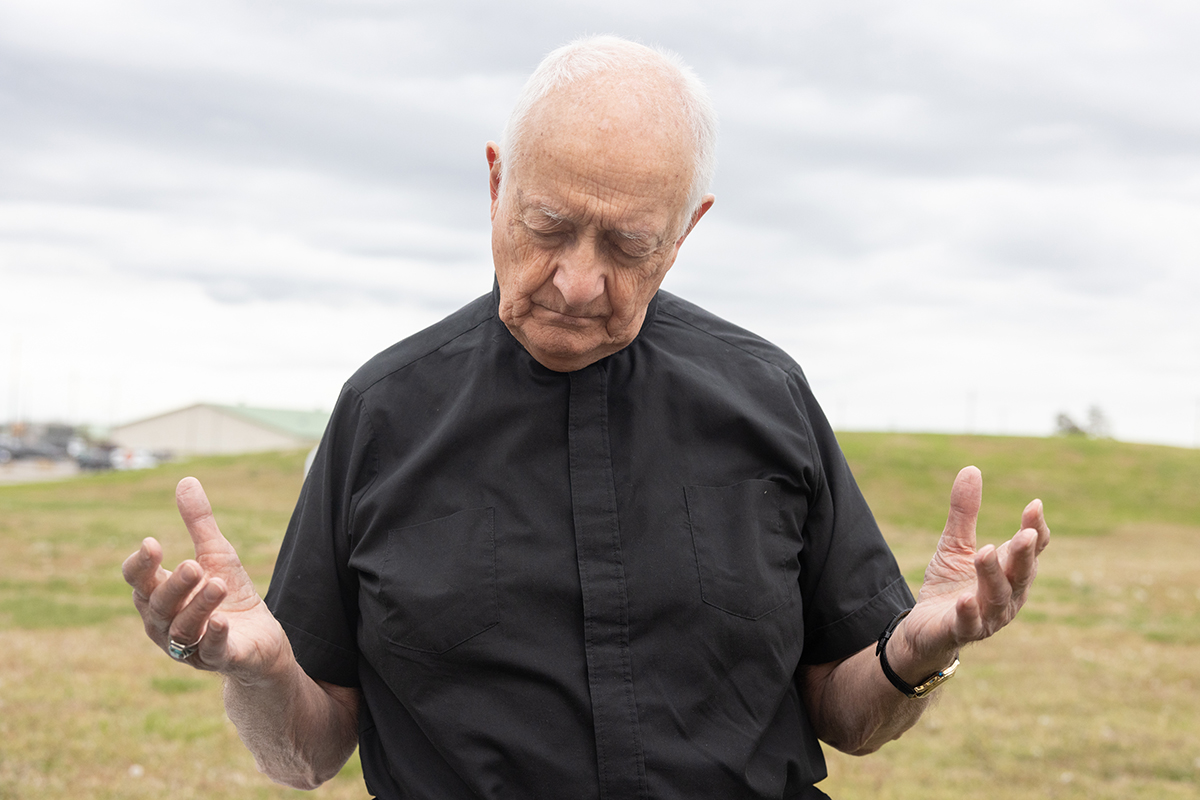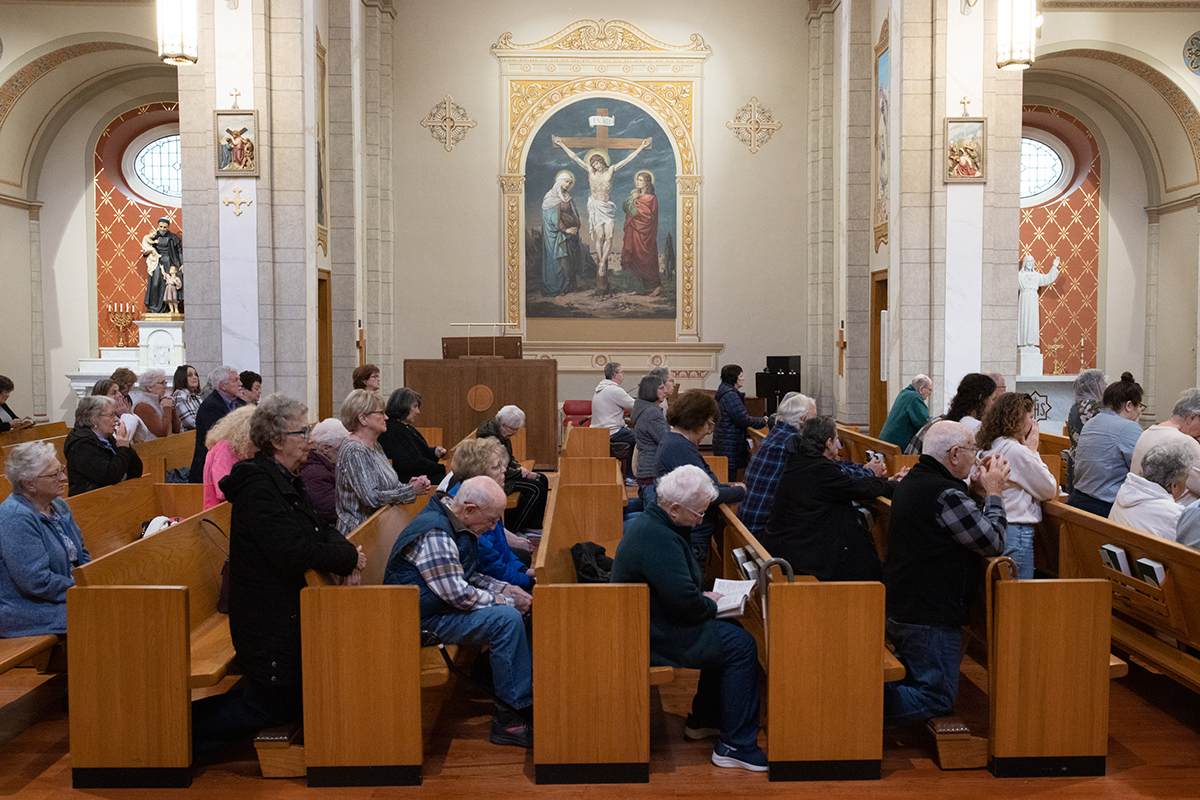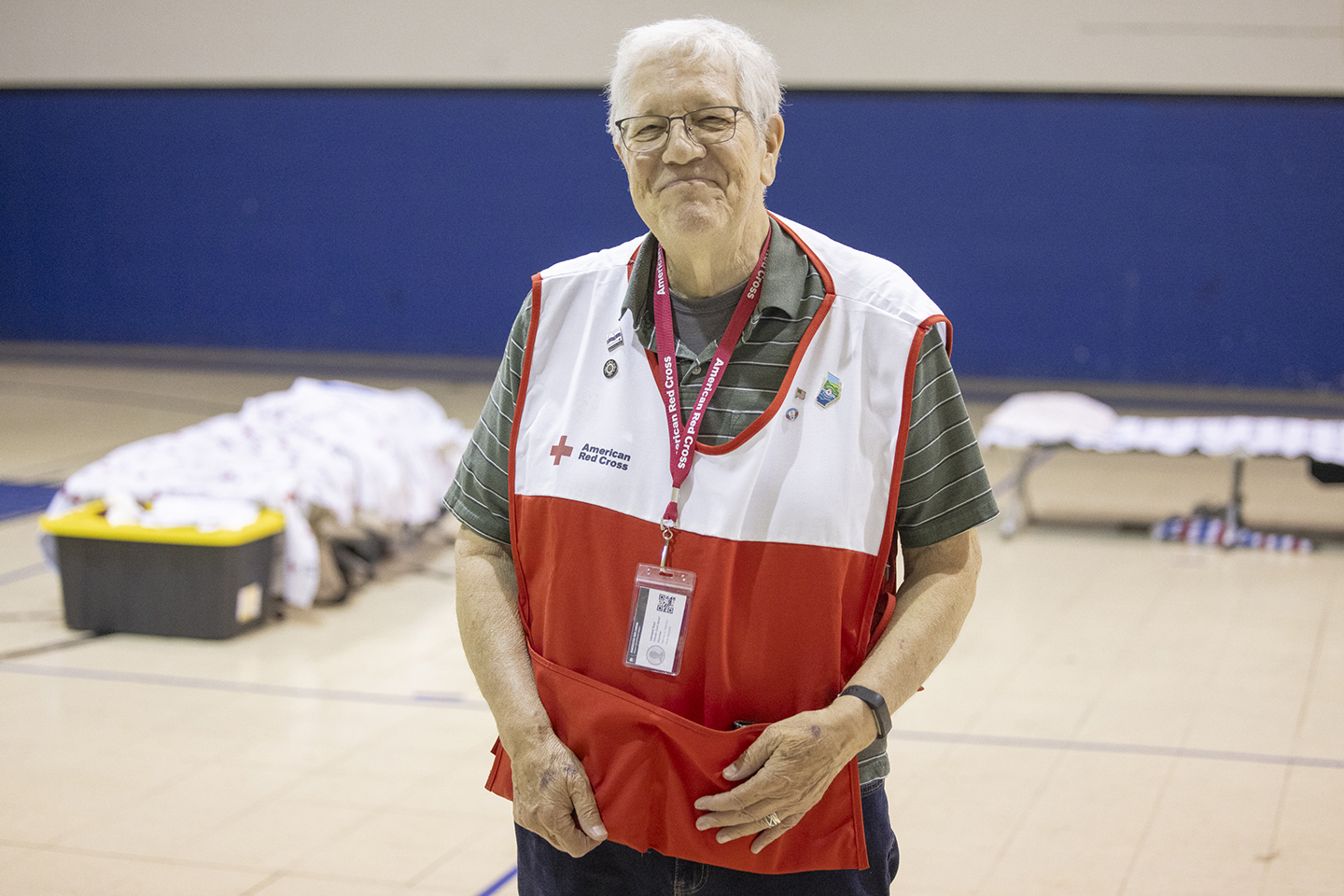St. Louis hosts conference to discuss Church’s ongoing response to protecting children
Topics of structural clericalism, well-being of priests among topics at four-day youth protection leadership conference in St. Louis
Father Joe Kempf didn’t understand why his pastor lied about him. Nor did he have an explanation for why the priest kept changing the locks in the rectory or spit in his food when he thought no one was looking.
Before he could do anything about it, Father Kempf, then a young associate pastor, received a phone call from a distraught parishioner, who reported that the pastor had sexually abused a boy at a social gathering.
Now pastor at Most Sacred Heart Parish in Eureka, Father Kempf shared his personal story published in his book, “Don’t You Dare Forgive. Unless …” with those attending the 2024 national Child and Youth Protection Catholic Leadership Conference April 22 in Downtown St. Louis. Within the context of his story, he also shared the complexities of what forgiveness is — and is not.
The four-day conference to discuss the Church’s ongoing response to protecting children and youth in the wake of the priest sex abuse crisis included nearly 240 attendees, including diocesan safe environment directors, victim assistance coordinators, review board members, bishops, clergy and lay Catholics. Other topics included building a trauma-informed Church, outreach to survivors of abuse, parish audits and more.
The pastor at Father Kempf’s parish was removed after the reported incident, which occurred in the early 1990s, prior to the U.S. bishops’ Charter for the Protection of Young People. As he detailed in his book, Father Kempf was instructed by the archbishop to say nothing during the investigation, and the pastor was allowed to announce his departure at all Masses — but to his circle of power in the parish, he blamed his departure on Father Kempf. The pastor later was sentenced to prison.
“Me, I mostly just wanted to cry. That’s until someone told me, ‘You just need to forgive,’” Father Kempf recalled. “And that’s when I just wanted to scream. No, I did not need to just forgive. What does that even mean? Why would anybody even think that was a good thing to say?”
The work of forgiveness, when understood within the context of faith, is essential to our souls, Father Kempf told conference participants. It doesn’t mean that we act as if nothing happened, but rather, it takes multiple steps of processing the grief and anger that comes from the hurt before surrendering it to God.
“One, we make an act of the will and we choose it,” he said. “Number two, we surrender it to God. And then number three, we do steps one and two — again and again and again. Jesus proclaimed that forgiveness is the path to life because when we forgive … we’re setting ourselves free. And forgiveness is one of those things which could seem impossible, except I have seen it with my own eyes.”
After the pastor went to prison and things settled down in the parish, “I felt like something inside of me had died,” Father Kempf said. “I was afraid I would never care as much again, but through many good people and God’s grace, really I care as much as ever.”
Father Kempf’s personal story touched on two other themes presented at the conference: structural clericalism within the Church, and the well-being of clergy in light of the “Charter for the Protection of Children and Young People” instituted in 2002 by the U.S. Conference of Catholic Bishops.
Paul Schutz highlighted the topic of clericalism as a structural reality that is shaped by the interaction of sex, gender and power. Schutz, a professor at the Jesuit-sponsored Santa Clara University, is co-author of a 2022 survey on the topic, which explores how a culture of clericalism contributes to the cover-up of sexual abuse by clergy in the Church.
Clericalism is a systemic issue that creates unhealthy environments in the Church, he said. The issue is not anti-clergy or the actions of certain “bad apples,” but rather looks at it from a structural perspective within the life of the Church.
The survey included their findings from interviews with nearly 300 participants, including including priests, members of religious communities and lay Catholics. All participants agreed that the structure of clericalism that exists makes it difficult to combat the issue of abuse in the Church.
“By studying clericalism as a structural reality, we’re aiming to understand how it’s baked into the reality of ecclesial life like cinnamon in a cinnamon roll,” Schutz said. “You can’t get it out, it’s what makes the cinnamon roll a cinnamon roll, and how that then is embodied and lived out by ordained ministers and laypeople alike.”
The survey suggested several ways to adopt anti-clericalism approaches in the Church, including healthy sexual integration for celibate priests, holding up positive examples of masculinity and femininity and empowering the laity to work alongside ordained clergy.
“All of this calls us each … as sort of everyday prophets,” he said, “who are proclaiming this message against the system of clericalism to our communities and seeking out new ways of being authentic community together, new ways of being the Church.”
Brandon Vaidyanathan, professor at The Catholic University of America, also shared highlights from a 2022 survey he co-authored examining the well-being of clergy and their relationships with their bishops since the “Charter for the Protection of Children and Young People” was instituted in 2002 by the U.S. Conference of Catholic Bishops.
Of the 10,000 diocesan and religious priests surveyed, only 24% said they had confidence in U.S. bishops in general. There were 131 bishops who also participated in the study, which explored attitudes about priests’ well-being, trust and the policy related to the sex abuse crisis.
The survey showed that 77% of the priests who responded could be described as “flourishing,” meaning that they felt fulfilled and had a sense of meaning and purpose. “We think that it’s the support of the bishop that is a huge contributor to the well-being of the priest,” Vaidyanathan said.
At the same time, the survey results revealed that younger priests are much more likely to report burnout than older priests. Likewise, diocesan priests are much more likely to report burnout than religious priests.
Vaidyanathan said the survey results lead to bigger questions, such as how to create a culture of safety without compromising effectiveness in ministry and how to balance due process and transparency.
“And how do you create a healthy culture of trust,” he said, “because it’s not a matter of going back. You don’t want to go back to the kind of clericalism we had earlier. You don’t want to go back to, the bishop knows everything, we must trust him, sweep things under the rug. That’s not the kind of trust you want.”
>> Further reading
“Beyond ‘Bad Apples’: Understanding Clergy Perpetrated Sexual Abuse as a Structural Problem & Cultivating Strategies for Change” stlreview.com/3UcwtEo
“Well-being, Trust, and Policy in a Time of Crisis: Highlights from the National Study of Catholic Priests” stlreview.com/3TEu0RJ
“Don’t You Dare Forgive. Unless …” by Father Joe Kempf stlreview.com/49Ui6dL
Father Joe Kempf didn’t understand why his pastor lied about him. Nor did he have an explanation for why the priest kept changing the locks in the rectory or spit … St. Louis hosts conference to discuss Church’s ongoing response to protecting children
Subscribe to Read All St. Louis Review Stories
All readers receive 5 stories to read free per month. After that, readers will need to be logged in.
If you are currently receive the St. Louis Review at your home or office, please send your name and address (and subscriber id if you know it) to subscriptions@stlouisreview.com to get your login information.
If you are not currently a subscriber to the St. Louis Review, please contact subscriptions@stlouisreview.com for information on how to subscribe.







